The Class of 2020
Showing remarkable resilience and creativity, #Classof2020 has adapted quickly to a rapidly changing industry and is showing what they wish the future of fashion should look like. And based on conversations we held with this selection of recently graduated students, the future looks bright. What struck us while looking through the work of the MBO and HBO academies – nine of whom you will meet below – was not only the students’ talent, but their desire to change the world for the better.
Topics explored by these young designers include our consumption practices, our relationship to heritage and gender representation, among others. Preservation of craft is another preoccupation, and there is a sense of resourcefulness evident in many of the portfolios we saw. Curated under the theme ‘Rethink’, this selection features projects that challenge the status quo, critique the construct of the fashion industry and propose new solutions.
Anna Jos Wetzel
ArtEZ Master Fashion Design,
Practice Held in Common
Country of origin: Germany
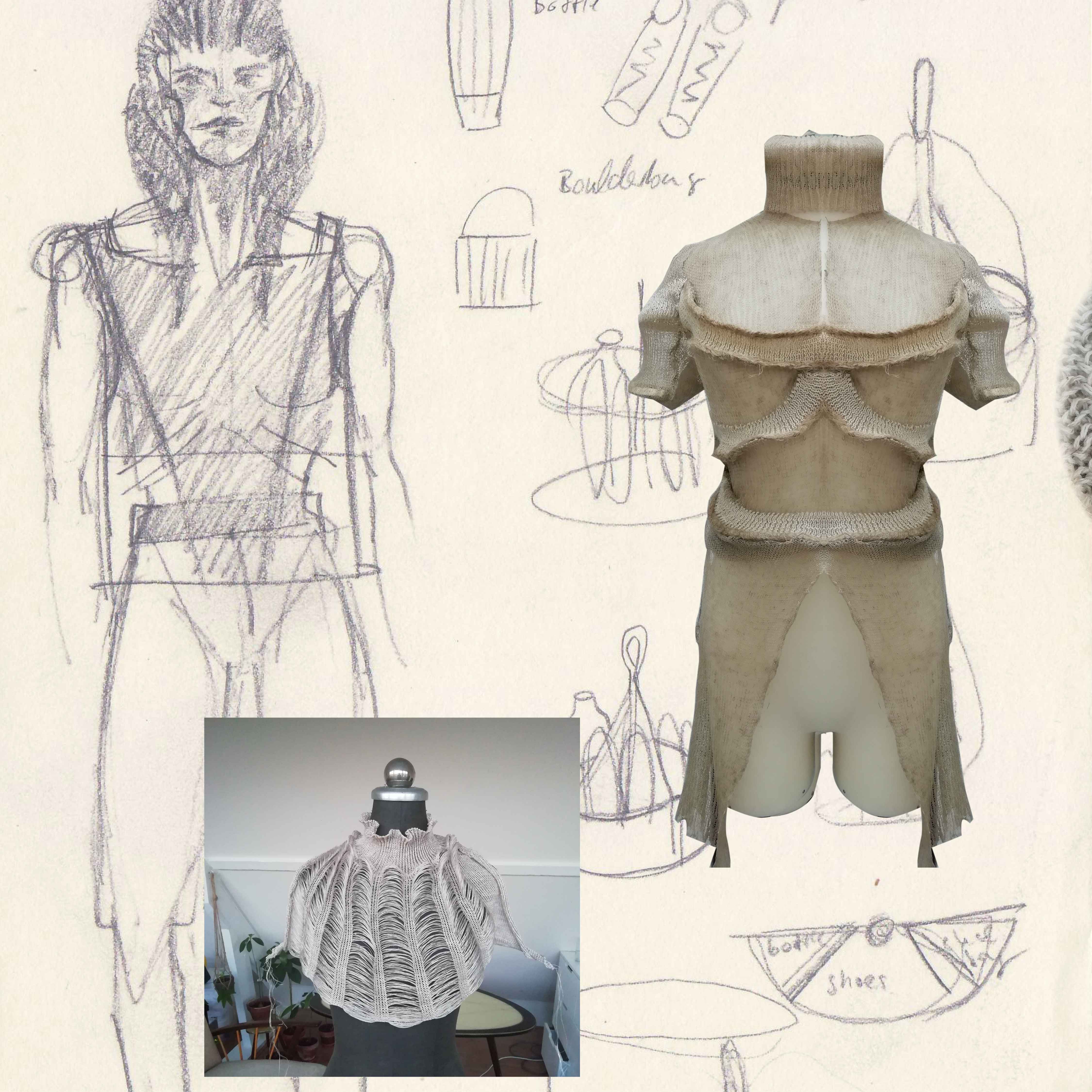
By Anna Jos Wetzel
“I dedicated two entire years to the material linen after I joined an initiative called The Linen Project. I inves tigated the entire process from “seed to shirt”. That included farming flax – the plant from which linen is made – in my family’s backyard, my own balcony, and the fields of the project. I strongly believe that a local linen production can benefit the environment, farmers, designers, and consumers if the value chain is set up in new ways. Together with the Linen Project I am still figuring out what these new ways look like, in respect to technical solutions and regarding awareness around creation and labour.”
Jobert Tremus
Willem de Kooning Academy
Country of origin: The Netherlands
“Social matters and personal traumas are always leading every design I make. I call myself an ‘artivist’, which means that I tell
a story through my art and fashion in order to make people aware and to stimulate activism. This year I decided to enroll in a degree to become a teacher in the arts. There’s a lack of diversity in the teacher departments of fashion schools and I want to be that change for future generations.”
Darwin Winklaar
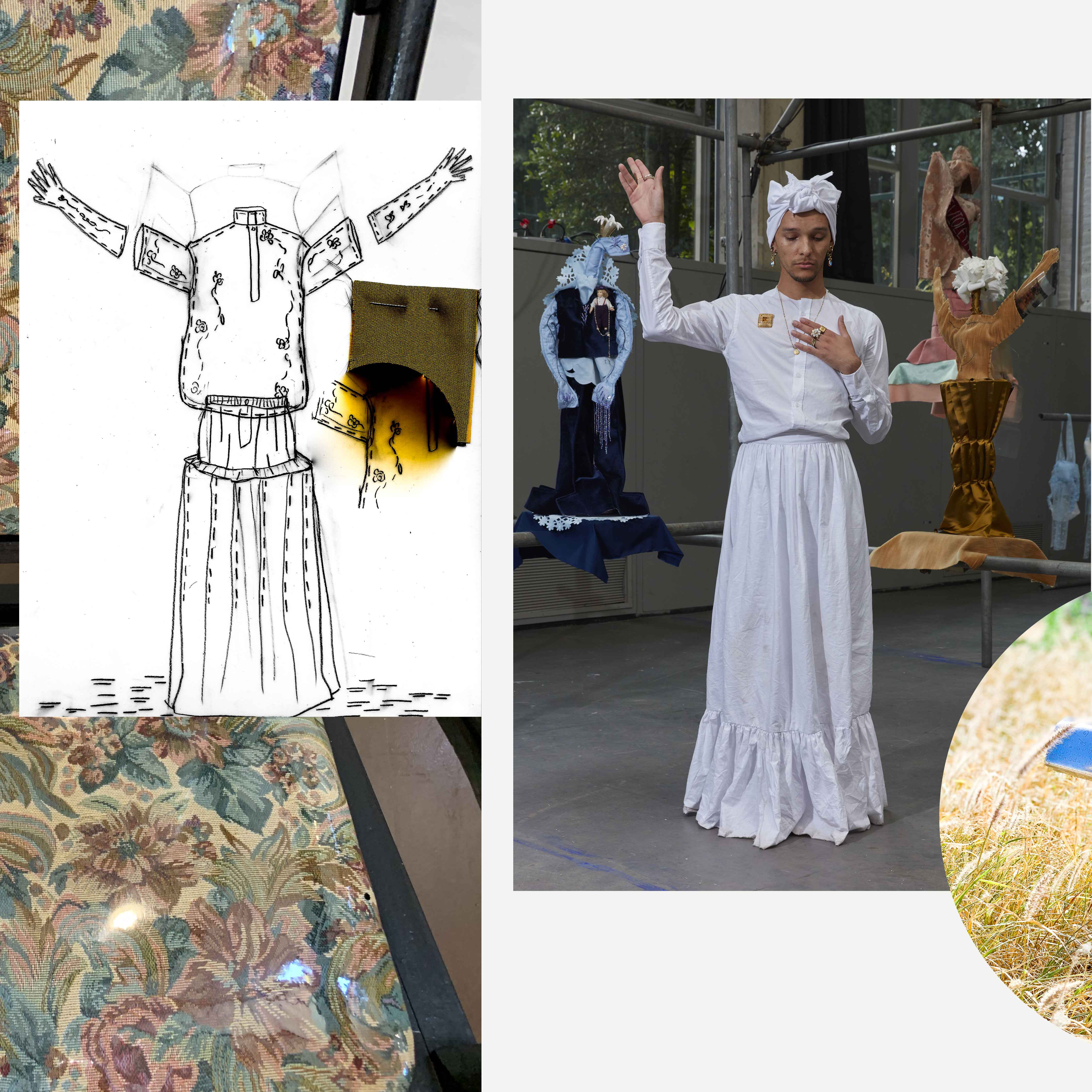
By Darwin Winklaar
“My graduation collection is an homage to my mother and Aruban culture. As a kid I would witness my mother practice her cathartic rituals while cleaning the house every Sunday. For my graduation presentation I built an installation, I call it an altar, in which I repeated the rituals that she used to empower herself. With the altar I want to highlight how I found refuge and peace within these beliefs provided by the women who raised me. My work is an honest account of how I battled mental health issues and the healing and reclaiming of my own identity, culture and sense of spirituality from a postcolonial perspective.”
Nemo Cheminée
ArtEZ University of the Arts Arnhem
Country of origin: The Netherlands
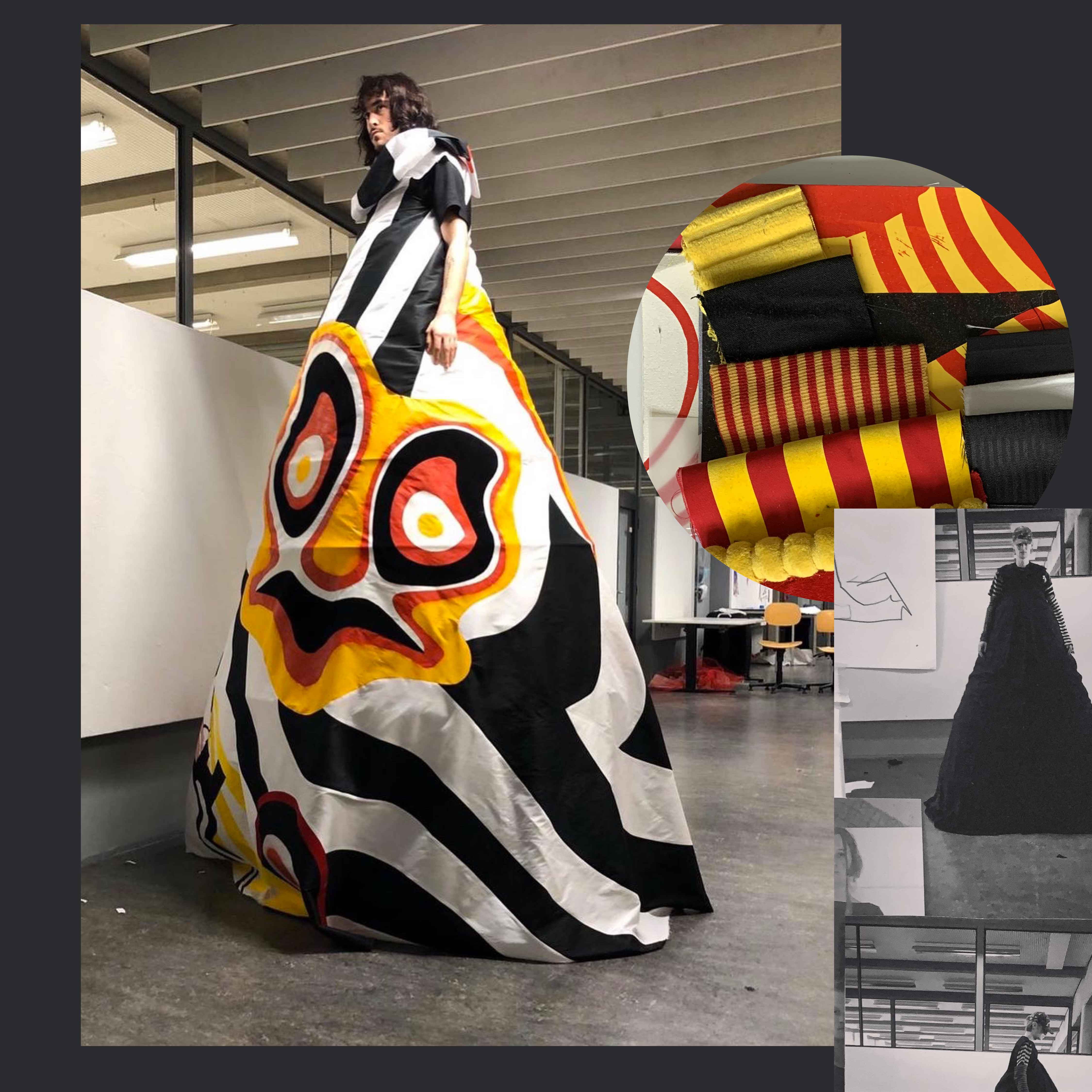
By Nemo Cheminée
“Me and my classmate Benji Nijenhuis decided to slowly start building up something together; a fashion house we like to call The Nightmare Disorder. Using styling, photography and design we want to focus on the storytelling aspect of fashion. We want to reinvent the fashion house. We want to still place ourselves in the high fashion industry, but in a way that is sustai nable and aware. We don’t necessarily want to make four collections a year, we want to hop from project to project and be free in the choices we make.”
Riemke Ipema
Zuyd-Maastricht Institute of Arts
Country of origin: The Netherlands
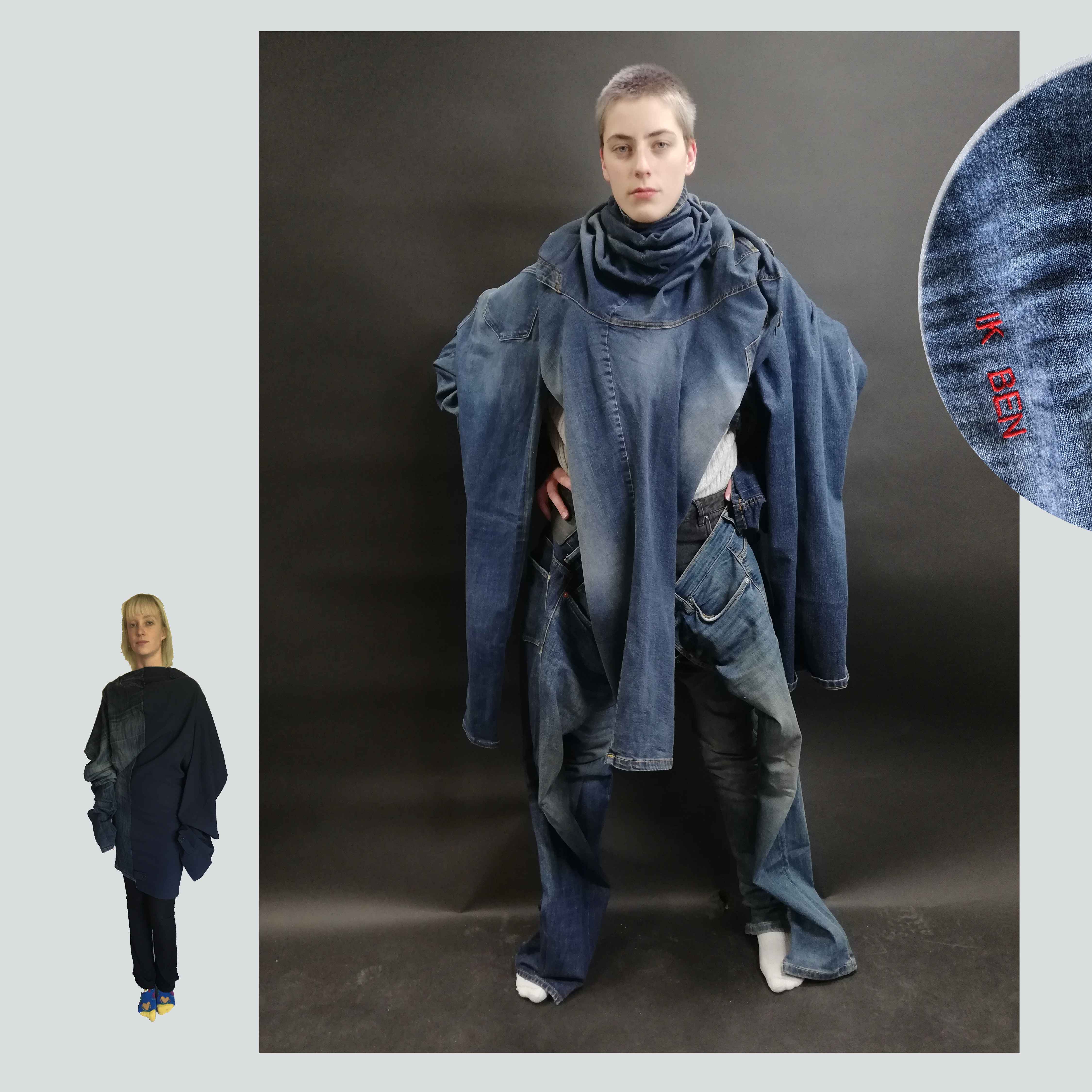
By Riemke Ipema
“With my collection BROEKRIEMKE I explored how deconstructed secondhand jeans can be used to open up a discussion about binary thinking, gender and sexuality. The clothing I design should not be solely esthetically pleasing – I want them to tell a story or convey an opinion. With my designs I hope to spark conversations, because I think talking about these subjects lies at the start of a better world.”
Annika van Amerongen
ROC Amsterdam
Country of origin: The Netherlands
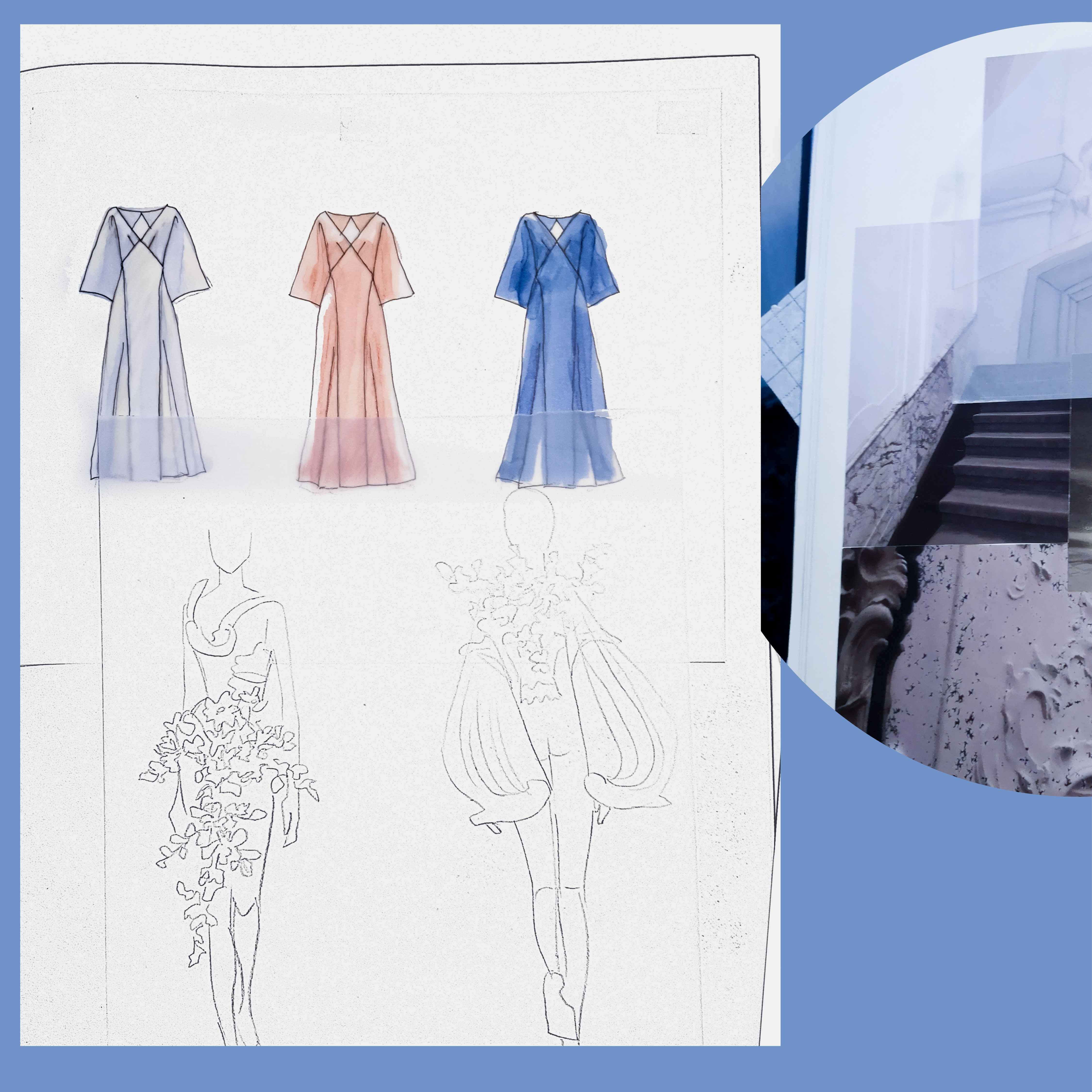
By Annika van Amerongen
“My collection is related closely to farming life and Dutch traditional dressing, which reminded me of my upbringing and surroundings as a child. The pandemic reinforced my perceptions of the industry as it were, and it seems to have alerted more people about it as well. Personally, I believe fashion has been redundant for a long time, considering that most collections are reinventions of the house codes and rehashing time periods from not even twenty years ago. Also, the fashion industry is a big contributor to the climate crisis, which made me choose for a more sustainable path – tailoring and custom design.”
Inge Vaandering
Royal Academy of Art The Hague
Country of origin: The Netherlands
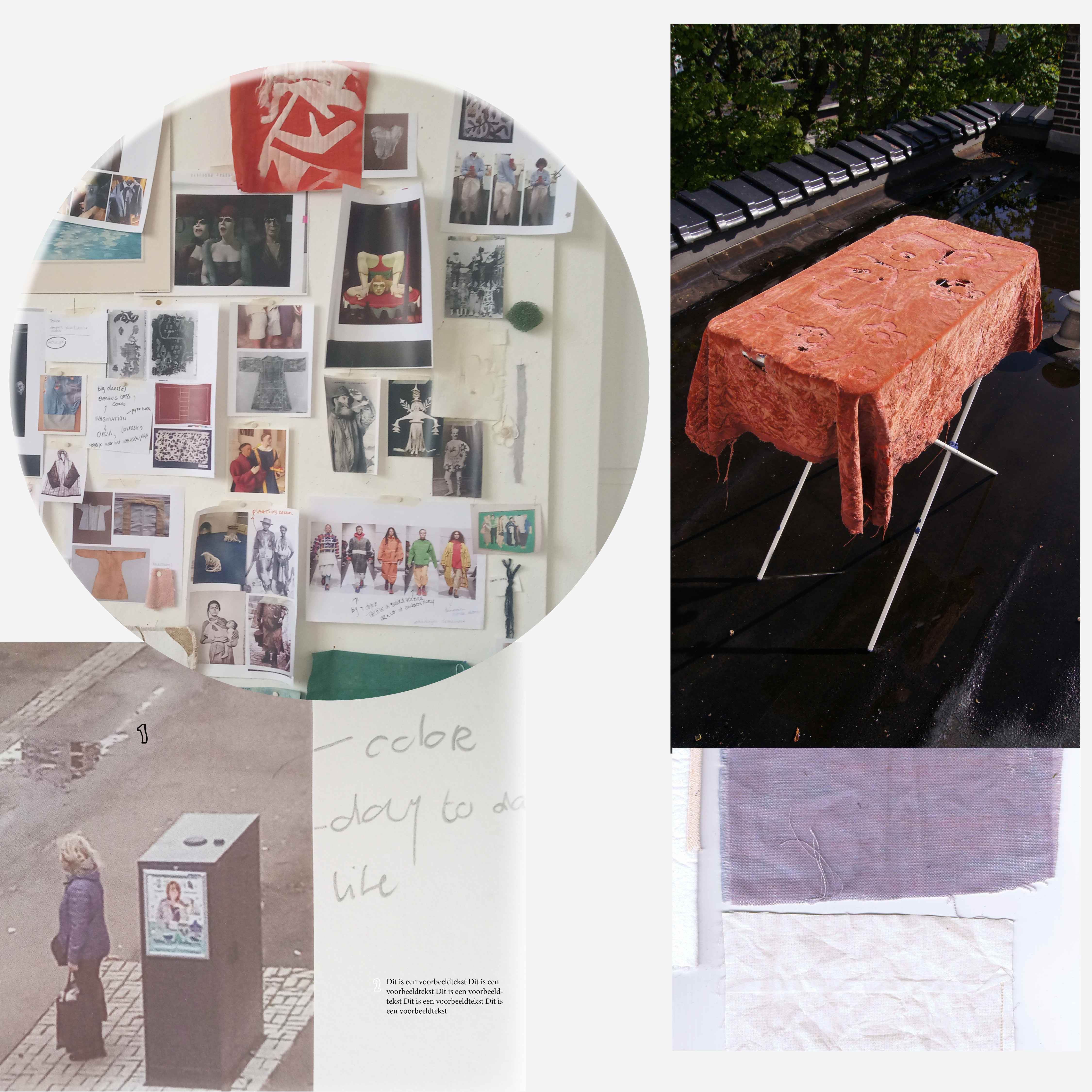
By Inge Vaandering
“In my work, I am interested in shifting the focus from sight to a more bodily perception. I like it to be a little bit off or unusual. Fabrics like cotton velvet are dyed and manipulated. Pieces of wool are treated with latex rubber, and crafted in a poncho. Thin paper is glued to cheesecloth and shaped as a parka, making a pleasant noise when you wear it. I try to find the tension between garments, objects, and people to provide a more imaginative and conscious perception of our feelings and surroundings.
Ekaterina Ravina
AMFI – Amsterdam Fashion Institute
Country of origin: Russia
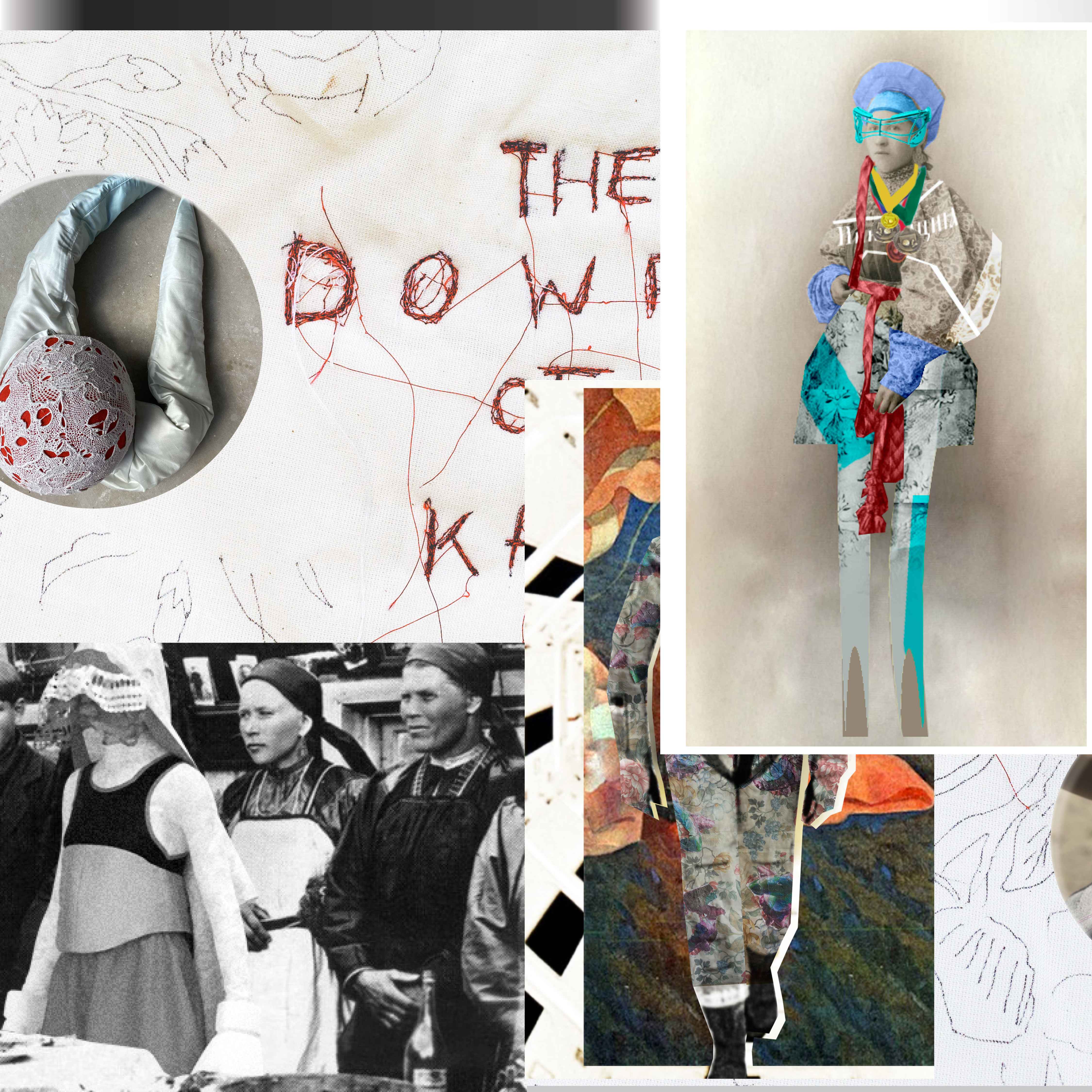
By Ekaterina Ravina
“I am concerned about deskillization and how massively people rely on technologies, so for my graduation I decided to set up a one-man experiment and travel back in time in Russia. To the period when young girls needed to prepare their own dowry, which would prepare them mentally and practically for the future. I viewed my graduation as a ritual of initiation and the final collection as my dowry, which I made with the use of analogue machines and reinvented crafts. No artificial intelligence, no exploitation, only good-old manpower and self-sufficiency.”
Jeanne Hermans
Master Tailor Institute
Country of origin: The Netherlands
“My graduation project was a replica of a Dior couture gown from 1947. It took me 430 hours to complete. As a tailor, I want people to start paying a fair price. It takes
time to deliver quality, which is ‘costly’. I hope people will realize that in return they get a piece that will last a long time, and is fairly made.”